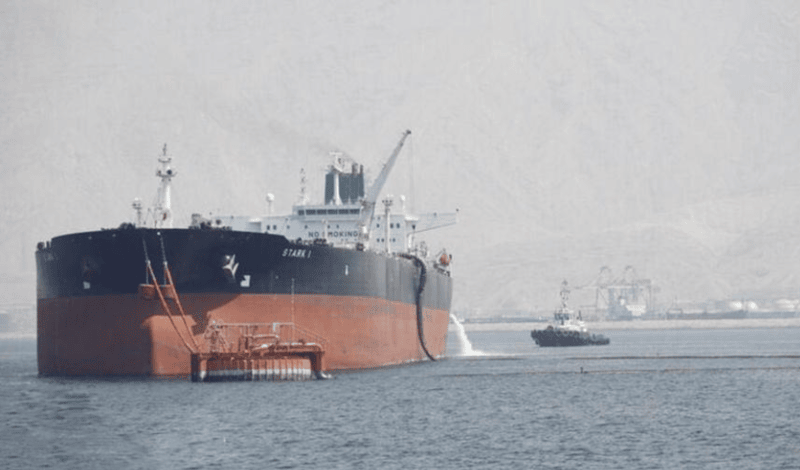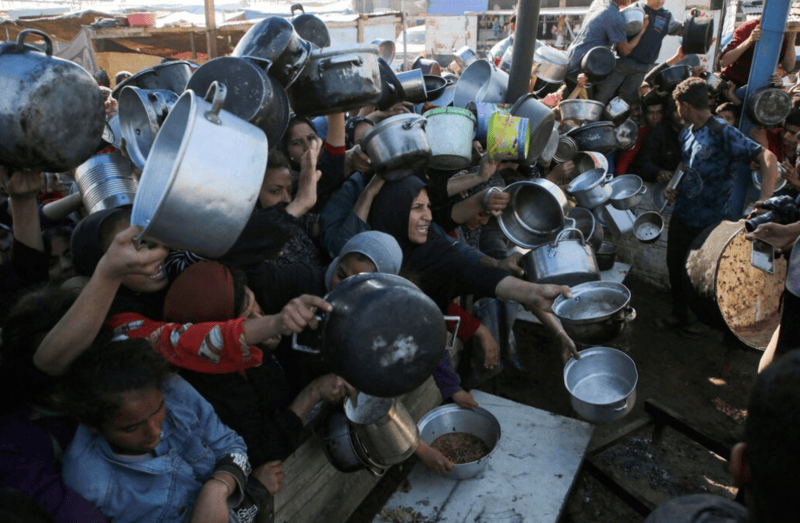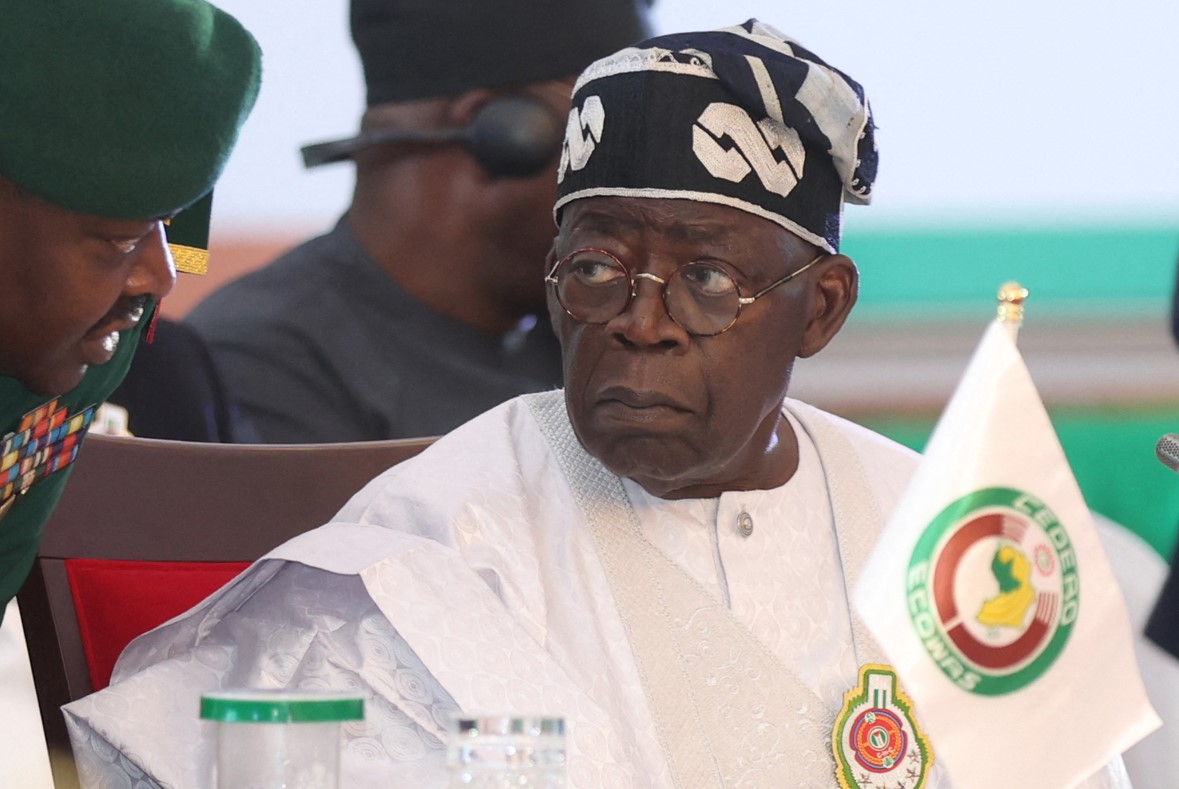Energy shock returns: Oil prices soar as Iran-Israel tensions shake global economy

The cost of crude oil affects everything from how much it costs to fill up your car to the price of food at the supermarket and retail stores.
Consumers are staring at yet another season of hiked commodity prices on the back of the ripple effect of rising oil prices stemming from geopolitical tensions in the Middle East.
Israel on Friday carried out air strikes across Iran, killing top military and nuclear officials, reportedly the most serious Israeli attack on Iran ever.
More To Read
- France urges EU to pressure Israel on two-state solution after pledging to recognise Palestine
- Kenya’s imports drop for the first time in five years
- Tanzania begins evacuating citizens from Israel and Iran as Middle East tensions escalate
- Middle East on edge after US deploys bunker-busting bombs in Iran airstrikes
- The Middle East is a major flight hub – How do airlines keep passengers safe during conflict?
- Xi Jinping urges calm as Israel-Iran conflict escalates, offers China’s support for peace efforts
Iran responded by launching at least 100 drones and ballistic missiles in Israel’s direction. Iran has vowed revenge, with the country’s supreme leader, Ayatollah Ali Khamenei, threatening “severe punishment”.
The direct military confrontation between the two rivals has jolted global energy markets, triggering panic among traders and policymakers alike.
Consequent to the Friday happenings, Brent crude, the international oil benchmark, initially soared by over 10 per cent before settling to a seven per cent increase, ending the day at $74.23 (Sh9,600) per barrel.
Analysts predict further volatility, with some warning that if Iran’s oil infrastructure comes under direct attack, Brent prices could surge to between $80 (Sh10,400) and $100 (Sh12,900) per barrel.
Though still below the 2022 peak of over $100 following Russia’s invasion of Ukraine, the current rise is arguably significant enough to pose inflationary threats worldwide.
The cost of crude oil affects everything from how much it costs to fill up your car to the price of food at the supermarket and retail stores.
Last month, the International Energy Agency forecast that benchmark oil prices would stabilise at lower levels from previous record highs for the rest of the year, due to a slowdown in global demand.
The agency also highlighted a key moderating factor: the recent accumulation of global oil inventories, which is expected to help keep prices in check during the same period.
Notably, oil prices resumed their downward trajectory in late April and early May this year, as trade tensions between the US and China impacted financial and commodity markets.
In April, Russian crude averaged $55.64 (Sh7,200) per barrel, with all major export grades trading below the $60 (Sh7,800) price cap set by Western allies.
On the other hand, North Sea Dated crude, a key global oil price benchmark for physical North Sea oil barrels available for near-term delivery, was trading at approximately $66 (Sh8,500) per barrel.
The agency’s projection mirrored that of the World Bank, which in its April commodity outlook projected Brent crude oil to average $64 (Sh8,300) per barrel in 2025, a fall of $17 (Sh2,200) per barrel from last year, and $60 (Sh7,800) per barrel in 2026.
Why prices will rise
However, with the renewed tensions between Israel and Iran, the earlier projection now appears increasingly uncertain.
Iran holds significant sway over Middle East oil shipments, largely due to its strategic location near the Strait of Hormuz, one of the world’s most vital oil chokepoints.
Its proximity to and control over the Strait gives it strategic leverage that few other nations possess. Any disruption to this critical chokepoint, whether real or threatened, often leads to immediate price shocks.
Iran’s military presence in the region and its history of threatening to block the strait during times of crisis only add to the market’s unease.
Beyond the Strait of Hormuz, Iran’s extensive network of regional militias, including Hezbollah in Lebanon and the Houthis in Yemen, plays a crucial role in its strategy to influence oil markets.
Since the outbreak of the Israel-Gaza war, Houthi forces, for instance, have been carrying out attacks on commercial ships in the Red Sea, particularly targeting vessels they claim are linked to Israel, or those travelling to and from Israel.
These attacks forced shipping companies to reroute vessels around the Cape of Good Hope, a move that inflated transit times, insurance costs, and fuel use, all contributing to the rise in global oil prices.
With the latest developments, the intensity of the attacks on commercial vessels could escalate once again.
Ideally, as oil becomes more expensive, transportation costs for goods increase, leading to higher retail prices.
Calls for de-escalation have since poured in from across the Middle East. The Gulf Cooperation Council, Jordan, and Lebanon have all condemned Israel’s strikes and urged restraint.
Saudi Arabia labelled the attacks a “clear violation of international law,” warning that further conflict could destabilise the region and jeopardise global economic recovery.
The rising tension comes at a particularly delicate time for the global economy, which is still recovering from pandemic-era shocks, supply chain breakdowns, and ongoing conflicts like the war in Ukraine.
Economists warn that another prolonged energy crisis could derail progress made in taming inflation and restoring economic stability, especially in oil-importing nations.
Top Stories Today













































